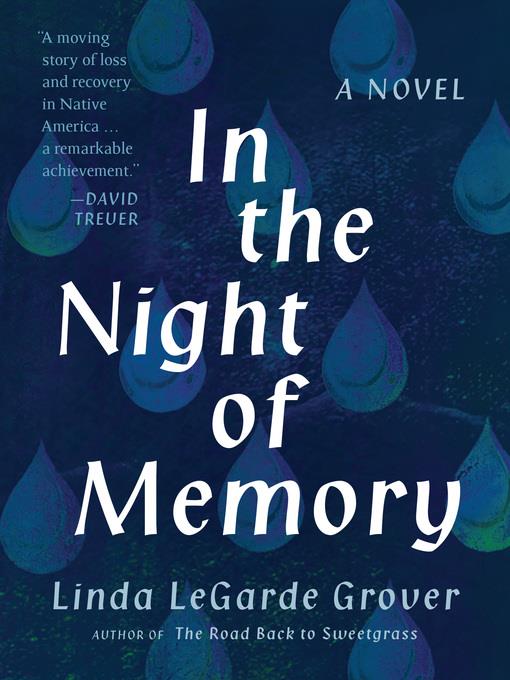
In the Night of Memory
A Novel
کتاب های مرتبط
- اطلاعات
- نقد و بررسی
- دیدگاه کاربران
نقد و بررسی

May 6, 2019
Grover, a member of the Bois Forte Band of Ojibwe, returns to the fictional Mozhay Point reservation (The Dance Boots and The Road Back to Sweetgrass) in northern Minnesota in this beautiful novel about powerful Ojibwe women working to unite their tribe and heal their families. Loretta Gallette, drowning in alcoholism and poverty, surrenders her three- and four-year-old daughters, Rain Dawn and Azure Sky, to the county and disappears. The story follows the children as they move through foster homes and are abused and neglected. Eventually, due to the persistence and determination of Loretta’s tribe, the Mozhay nation, as well as the Indian Child Welfare Act of 1978 (a federal law that gives tribal governments exclusive jurisdiction over tribal children in matters of custody), the young girls are brought home to their tribe. As the girls struggle with the haunting absence of their mother and the emotional and physical damage from living in nightmarish foster care homes, they find comfort and strength—mainly from the women—of their home reservation. The girls hear family stories of strife and love; the broken childhood of their mother; the depression that eats at their uncle Junior, a Vietnam vet; the loss of tribal lands to white settlement; and the struggles many have had with alcohol, divorce, and domestic abuse. With gorgeous imagery and verdant prose, LeGarde Grover’s novel lays bare the pain and loss of indigenous women and children while simultaneously offering a ray of hope.

April 1, 2019
Grover's second novel (after The Road Back to Sweetgrass) focuses on Rainfall Dawn and Azure Sky, who as toddlers are surrendered to the state by their mother, Loretta. They experience first a middling foster home, then an abusive one. They're barely into their teens when their Ojibwe family finds them and through the new Indian Child Welfare Act requests their return. Rainy and Azure then move to Duluth, MN, and are reintroduced to their indigenous roots. This upswelling of unaccustomed love and belonging changes everything. When they're taken to a powwow at the Mozhay Point Reserve soon after, the connections to family and tradition are moving and affirming. After this high point, the conclusion quickly spans the characters' later lives. VERDICT Told with vibrancy by an Ojibwe professor and poet, this own voices story of Ojibwe girls in a situation only too common for indigenous families shouldn't be missed. Recommended for readers seeking contemporary takes on indigenous life and those who enjoy family sagas containing hope and beauty alongside sadness.--Melanie Kindrachuk, Stratford P.L., Ont.
Copyright 2019 Library Journal, LLC Used with permission.

March 15, 2019
Grover, an award-winning author and professor of American Indian Studies, here returns to the fictional northern Minnesota reservation on which her previous moving and thought-provoking novels and stories are set. Loretta Gallette, single, poor, and alcoholic, is finally forced to surrender her two young daughters, Rainfall Dawn and Azure Sky, to the county. The first half of Grover's multigenerational story follows the girls from one loveless foster home to another as they struggle to remember their mother. The larger story is that of the reservation Loretta left behind, and those who remain there after her disappearance as one of the many Indian women who dropped off the face of the earth without anyone even noticing for the longest time. Eventually, distant family members come together and request the return of the girls to the tribe under the terms of the 1978 Indian Child Welfare Act. There the girls grow up in a safe and loving cocoon unlike anything they had experienced. The tragic legacy of Indian boarding schools, including Rainy's fetal alcohol syndrome, hovers over Grover's sad but ultimately uplifting tale.(Reprinted with permission of Booklist, copyright 2019, American Library Association.)

























دیدگاه کاربران